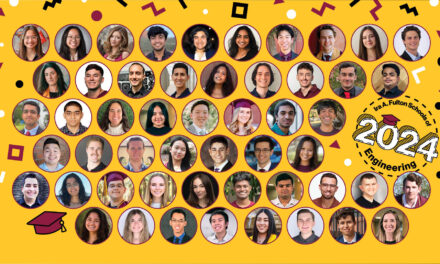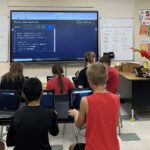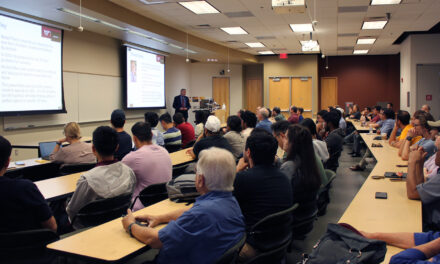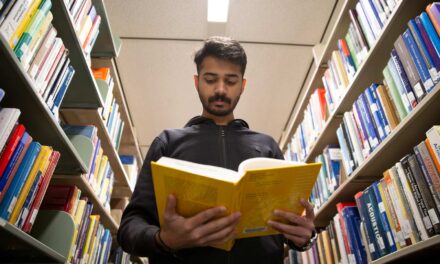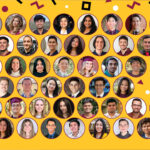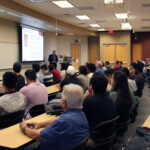
NSF Graduate Research Fellow aims to improve lives with synthetic biology
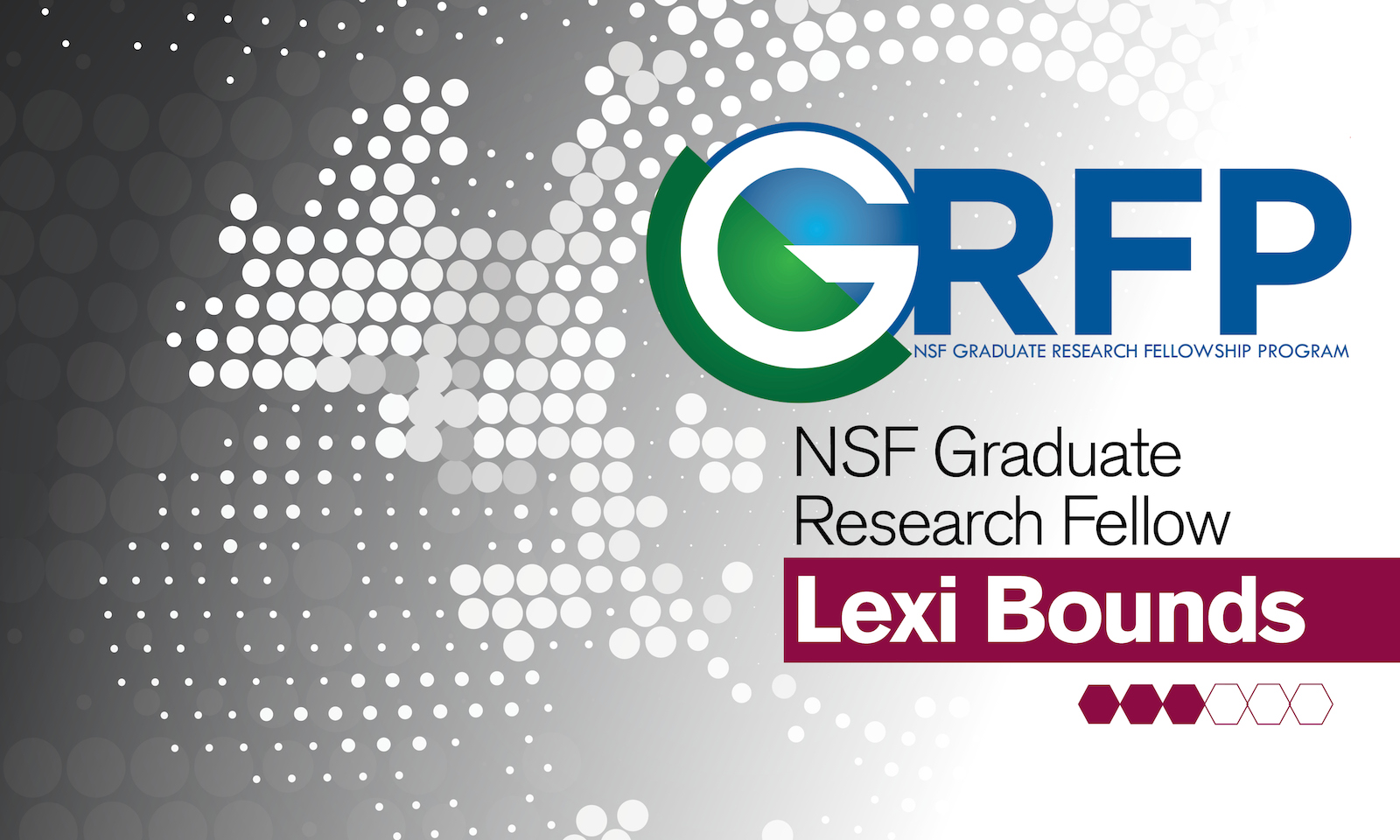
This is part three of a six-part series highlighting GRFP award winners from the Ira A. Fulton Schools of Engineering.
For recent biomedical engineering graduate Lexi Bounds, it was an enthusiasm for soccer that unexpectedly led her to find a new passion in the sciences.
“In high school I read a journal article that described a group of scientists who had ‘grown’ a soccer ball with pig bladder cells,” says Lexi Bounds. “Being a soccer player, I was more interested in being able to make my own soccer balls, but later thought that similar methods could potentially be used to engineer organs so that individuals in need would no longer have to wait for a match on the organ-donor list.”
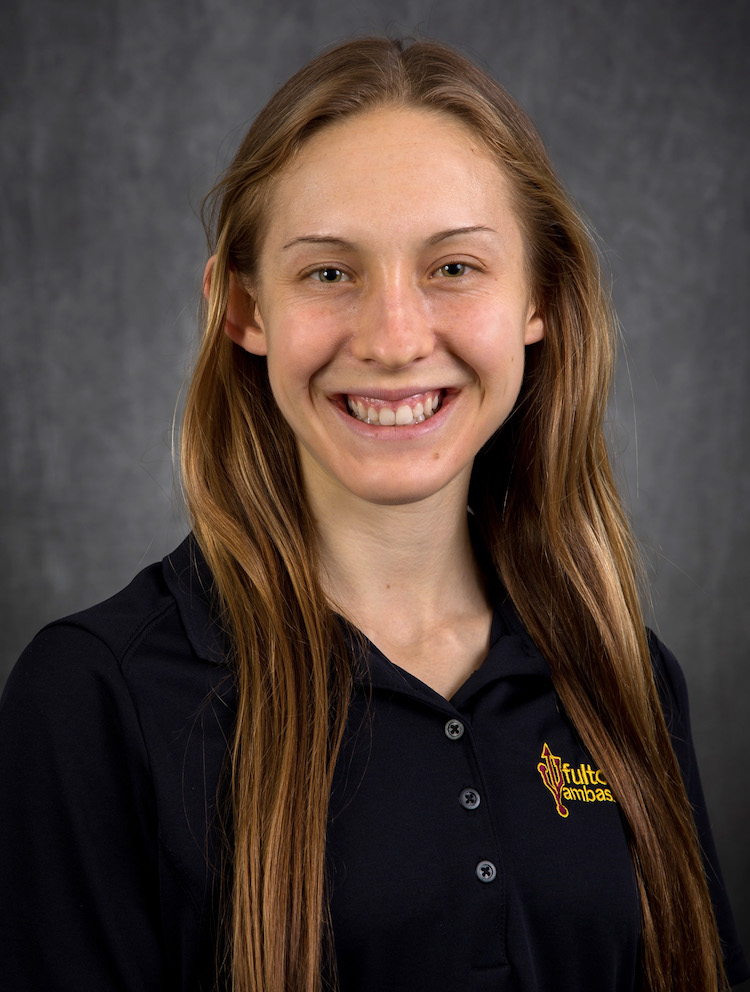
Lexi Bounds
Bounds has always enjoyed learning how things work and why certain events occur. Engineering provides the mathematical and scientific basis to explain these processes.
A family friend of the Chandler, Arizona, native who happened to be a former faculty member in the Ira A. Fulton Schools of Engineering at Arizona State University convinced Bounds that ASU was the right place for her undergraduate education.
During her freshman year, Bounds played on the Sun Devil women’s soccer team. In her sophomore year, she gained an interest in scientific research and started working in the lab of biomedical engineering Assistant Professor David Brafman.
“Dr. Brafman introduced me to the concept of in vitro disease modeling and my research interests have focused on that field since,” Bounds says.
Bounds continued her work in Brafman’s lab as part of the Fulton Undergraduate Research Initiative during the fall semester of her junior year. She worked to find new approaches to understand how Alzheimer’s disease starts so that researchers can better treat it.
“In vitro disease modeling allows disease pathology to be studied in a more simplified and accessible manner,” says Bounds. “It allows for high-throughput screening so that effective therapies can be identified. More broadly, it provides a tool to study basic cellular processes as well and improve our fundamental understanding of the human body. I hope to make a meaningful contribution to the field, whether that is through developing new technologies or making novel discoveries.”
It was Bounds’ research that led to her being selected as one of 2,000 National Science Foundation Graduate Research Fellows selected for 2018. Receiving the NSF Graduate Research Fellowship was validating for the young scientist.
“Put simply, it is amazing to be recognized and the fellowship brings a sense of validation that all the hard work throughout my undergraduate education paid off,” Bounds says. “Having a committee that has never met me recognize that they see my potential to pursue an academic career further cements my future career goals and gives me more confidence in pursuing them.”
Bounds, who graduated from Barrett, The Honors College, will next be continuing her research at Duke University where she will be studying biomedical engineering with a focus on synthetic and systems biology, tissue engineering and regenerative medicine.
“My long-range career goals are to eventually earn a faculty position and lead my own lab,” says Bounds. “I also plan to stay involved with education outreach and mentoring.”
Bounds credits her experiences in the Fulton Schools to getting to this point of her academic career.
“The opportunity to be involved in undergraduate research through FURI and the mentorship of Dr. Brafman shaped the scientist and individual I am today,” she says. “The Fulton Schools taught me how to learn and how to process new information quickly.”
In addition to the scientific skills Bounds gained as an undergraduate researcher, she says she cannot understate the value of the rich research community at ASU.
“The fellowship also represents the tremendous support and mentoring I have received from other undergraduate and graduate students in my lab and other labs, as well as from Dr. Brafman.”






